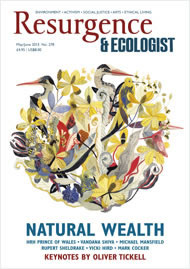Writing and assembling a book revealing something of my late father, Walter Ernest Spradbery, was a duty and a necessity that I felt compelled to fulfil. Though it is considered an art book, it is difficult to limit the content to one simple category because of the vision, passion, faith and beliefs my father held and stood by all his life. If the book has any pretensions to being a literary work, it might be looked upon as a biography, a romance, a novel or even some sort of encyclopedia of the human spirit. It comprises some remarkable correspondence written by my father. Stored away and forgotten in an attic in the north of England, these hand-written letters were discovered and returned to me only recently by the recipient’s daughter-in-law. Part of a collection of correspondence consisting of over 1,000 letters, they were written to my father’s lifelong friend, James Berry, whom he met on the Somme in 1918.
The letters reveal the story and background to the figure of the man my father was and the life he led. ‘Sprad’, as he was commonly known, valued friendship as something precious. Haydn Mackey and Austin Osman Spare, controversial and influential artists of their day, were amongst the great gathering of friendships he collected throughout his life.
Frank Pick, doyen of London’s transport services – when they reigned supreme in the world of public transport – was another loyal friend, who wrote one of his last letters to Sprad just before his own death. The world-renowned artist Frank Brangwyn was yet another of his greatest latter-day friendships, as was Arthur Heygate Mackmurdo. The Australian boys’ club leader Bernard Faithfull Davies (who inspired a whole generation of post-war young men) worked alongside my father for the National Association of Boys’ Clubs in summer camps around Britain.
Sprad’s romance and marriage to my mother, Dorothy D’Orsay, was the crowning happiness of his life. One a painter, the other a musician, they were unique, collaborating spirits in two very distinct fields of the arts. Their home, The Wilderness in Epping Forest, held sway with opera and music throughout the Second World War and in the years after. Dorothy was one of the first singers to broadcast on the early BBC radio.
I came to write and assemble My Dear Jim after being spurred on by the words of Andrew Dalton, a local resident whom I met on a protest march to save Walthamstow’s William Morris Gallery, which my father had been highly instrumental in establishing. Dalton, who was very well regarded in local culture, music and the arts, posed the question of why nothing had ever been written about Spradbery. The question was raised on that particularly dramatic occasion because to Dalton and many other protesters the William Morris Gallery was a symbol of the cultural heritage and legacy of Walthamstow and East London. Not surprisingly, the figure of my late father loomed clearly in his mind.
Spradbery may not have been remembered as the artist, the pacifist, the visionary spirit or the teacher he was. Yet he was certainly, in the eyes of those who could recall that far back, the inspiration and enduring spirit in establishing Walthamstow’s most prestigious monument to the working-class artist and William Morris himself.
To this day, in my eyes, Walter Spradbery remains a man of unblemished virtues, principles and intellect. He was a dedicated humanitarian and a man of peace.







